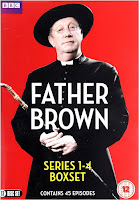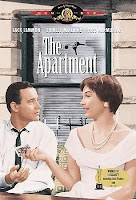 |
| (Amazon UK link) |
Although the film is in colour, the opening few minutes feature still black and white drawings depicting the (theoretical) French Clement family who have built up an empire in New York over several generations. The current owner, Jean-Marc Clement (Yves Montand) is a billionaire, and very arrogant. He speaks several languages and has very little time to himself.
Then he learns from his press agent Alex Coffman (Tony Randall) that an off-Broadway theatre company are going to produce a show that satirises several famous people, including Jean-Marc. His instant reaction is to get it closed down, but Alex points out that this would be counter-productive. He suggests that they go and see what exactly is happening, showing good sportsmanship by being amused rather than offended.
Rehearsals are only just beginning, but Jean-Marc is smitten with Amanda (Marilyn Monroe) who is the main female star of the production. So when the director assumes that he is auditioning for the part of Jean-Marc, he goes along with it, hoping to get to know Amanda better.
It’s an amusing premise, and one that’s done very well. We thought the pace of the film excellent; perhaps the musical numbers in the show rehearsals are a bit long and tedious, but everything else works very well. The acting is a bit overdone, but that is typical of the era, and adds to the humour in a film that’s not meant to be taken seriously.
We very much liked the comedy of errors that results, as Jean-Marc starts to fall in love, and discovers that being (apparently) an impoverished actor is a very different proposition to being an autocratic billionaire. Nobody laughs at his jokes, and Amanda doesn’t fall into his arms; she’s romantically involved with someone else, and she’s quick to point out Jean-Marc’s failings. It’s quite poignant as he realises that his power and money have attracted women and hangers-on, and he tries to figure out who he is, as a person.
There are some amusing interludes as Jean-Marc tries to learn to tell better jokes, and to dance and sing, with cameo roles by Bing Crosby and Gene Kelly playing themselves. I didn’t particularly like Tony (Frankie Vaughan) who is Amanda’s co-star in the show, and romantic partner, but felt quite sorry for him towards the end.
I was surprised at how very engaging and enjoyable this film was, and felt quite immersed in it despite the rather alien settings of a risqué show and a billionaire’s huge office block. Definitely one to watch again in a few years.
I had wondered if the phrase ‘make love’ was still used in the Jane Austen sense of chaste flirting in the 1960s. But apparently the usage moved over to the current understanding in the 1940s, so the film and its contents are far from innocent. The rating in the UK is U, probably because there’s nothing explicit, no bad language and no real violence. But the theme isn’t appropriate for children, and it’s not something I would show to anyone under the age of about twelve or thirteen.






